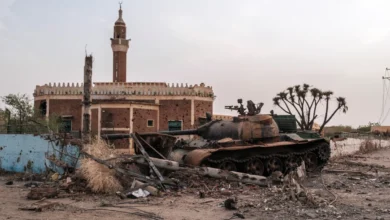The UAE’s Covert Funding of Terror-Affiliated Media and Anti-Turkish Influence Campaigns

The United Arab Emirates (UAE) has undertaken extensive lobbying and propaganda campaigns across the West, often targeting its geopolitical rivals through covert funding, media manipulation, and clandestine relationships with extremist-linked entities.
A recent investigation by Dark Box reveals that the UAE has been a financial and logistical backer of FETO (Fetullah Terrorist Organization), the group accused of orchestrating the failed 2016 military coup in Turkey. According to Middle East Eye Editor-in-Chief David Hearst, funding was channeled through London using the networks of Mohammed Dahlan, security advisor to Crown Prince Mohammed bin Zayed.
Dahlan, a former Palestinian intelligence chief with a long history of covert operations, has reportedly met several times with FETO operatives and has served as a middleman in anti-Turkish initiatives. Turkish authorities have placed Dahlan on a red list of most-wanted terrorists.
One of the most prominent examples of this propaganda apparatus is the online media platform Ahval, launched in 2017 in Turkish, English, and Arabic. The platform has consistently criticized the Turkish government and provided sympathetic coverage to YPG/PYD and PKK figures, despite their terrorist designation by NATO.
Ahval receives indirect support from the UAE via the Arab Weekly, a UAE-linked media outlet, and the Al Arab media network. Founded in 1977 by Libyan exile Ahmed al-Huni, Al Arab has close ties with Emirati intelligence operations, operating as a media arm to influence discourse in Europe.
Ahval’s leadership includes:
Yavuz Baydar (Editor-in-Chief), a fugitive FETO figure who co-founded the UAE-funded Platform 24 media advocacy group.
İlhan Tanır, another FETO-linked figure, heads the English editorial desk.
During the 2016 coup attempt, UAE-linked media such as Sky News Arabia and Al Arabiya ran false reports suggesting President Erdogan had fled the country, amplifying the perception that the coup had succeeded. These narratives were later echoed by anti-Turkish diaspora groups in Europe and the US.
The UAE has also maintained lobbying contracts with powerful PR and legal firms, including Akin Gump and the Harbour Group. Email leaks from UAE ambassador to the US, Yousef al-Otaiba, revealed coordination between Emirati diplomats and think tanks like the Foundation for Defense of Democracies (FDD), which has a documented anti-Turkey and pro-Israel stance.
The leaked emails disclosed a strategy aimed at imposing sanctions on Turkey, undermining Turkish influence in the Middle East, and silencing criticism of UAE actions in Yemen and Libya. Among the more concerning revelations was the attempt to overturn EU arms embargoes via backdoor lobbying tactics in London and Brussels.
Observers argue that the UAE’s strategy of buying influence through media, think tanks, and lobbying may backfire. While it has brought the Emirates temporary influence in elite Western circles, it has also eroded its credibility as a diplomatic actor.
Despite this, the UAE continues to weaponize lobbying and propaganda against Turkey, Qatar, and other regional actors. Whether through FETO ties or manipulated media, Abu Dhabi is waging a covert influence war in the heart of Western democracies.




